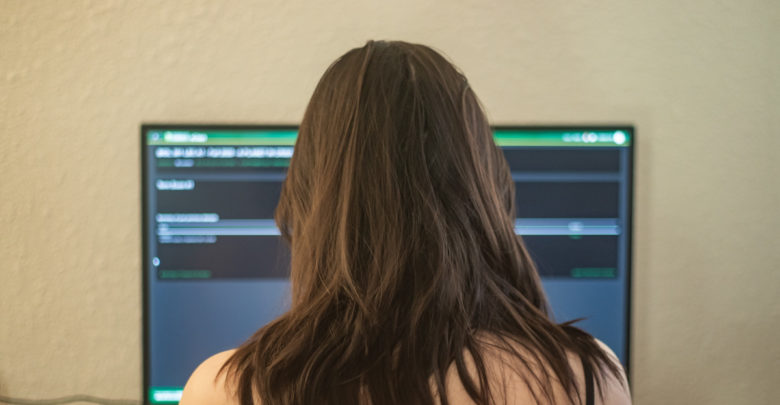Students need to gain the right to disconnect
After 18 months of online classes, disconnecting has never been so important.
 Christien Ford
Christien FordThe pandemic has made work and school life more connected than ever before. Were we better off before this?
Twenty years ago, students had to punch class codes into an automated telephone system to register for courses. Before that, students would line up and wait for hours to register for courses. BearTracks — as infamous as it — beats the prospect of camping out in line for course registration. Despite what connectivity does to simplify our lives as students, we could benefit from facilitating disconnection.
The right to disconnect is an increasingly popular idea, seeking to give employees the ability to turn off their work notifications after work. Recently, it has become tabled legislation in Ontario. Employers with 25 or moree employees would have to develop disconnecting-from-work policies. Reasonable expectations of email response times would help reclaim time for employees outside of work hours. For Doug Ford’s government, this policy is about attracting skilled workers to Ontario and winning the working electorate’s vote.
It is easy enough to see the appeal of this proposed policy. Anyone who has worked a job can understand how overwhelming work communications can be. They are distracting and stressful. Giving your boss your cell number means you can be asked to pick up a shift at any moment. Any time of day, your supervisor can phone you. If these communications are stressful enough, they could even become a health risk. Taking care of ourselves means we need to be able to say no to constant communications.
Disconnecting from school is a challenge, much like disconnection from work. Students can relate to the needless number of emails from the university, its staff, and student groups. Talking points are repeated in newsletters week after week. Email quickly turns from being informative to being distracting and addicting. Somehow, universities worked long before the invention of email and eClass.
The pandemic has only exaggerated the insanity of constant communication. On September 16, when the university canceled in-person classes, I was on my way out the door before I found out. When everything can change in a matter of hours, nobody can reasonably keep up.
Yet, we are supposed to. I get notes for my courses sent out at 11:00 p.m. on Sundays, expecting I will have time to print them before Monday’s lecture. Ridiculously, one of my instructors sent out an email encouraging us to read his important emails. Email communications should be clear, concise, and sent well in advance; maybe then we would not be trampled by the information superhighway.
Disconnecting could also mean recognizing when the internet becomes an impediment and not a facilitator of learning. As students, we are all too familiar with aggravating online labs — another result of the pandemic — that don’t work like they are supposed to. My statistics homework would take half the time if eClass did not load so slowly. Beyond that, computers are a realm of a thousand distractions, from emails to social media. After a year of learning online, the shortcomings of the internet should be obvious. When technology does not make learning easier, then it makes us learn less, and learn less efficiently.
As students, disconnecting means having the ability to take breaks from school, from campus, and our email inbox. Disconnecting then gives us the attention we need to engage with family, hobbies, and community, or simply the time to enjoy coffee and a book. We need to give ourselves breaks to have the energy and mental clarity necessary to get work done that we can be proud of.
Better email etiquette would be an excellent place to start, since we have no one to blame but ourselves for too much connection. As students, we should pay better attention to announcements, so they only need to be made once. We should look for a balance where we are reliable communicators, while still allowing time away from attention-consuming inboxes and group chats. I would like to check my email once a day without worrying that I am missing out on something in my classes.
When we are busy with exams and deadlines, technology amplifies the tunnel vision our workloads can create. In the context of students, the right to disconnect could mean saying no when technology is making our lives more complicated and stressful than need be. Sometimes we need to eat some sour candy, watch Star Trek, and not worry about our English assignment.




